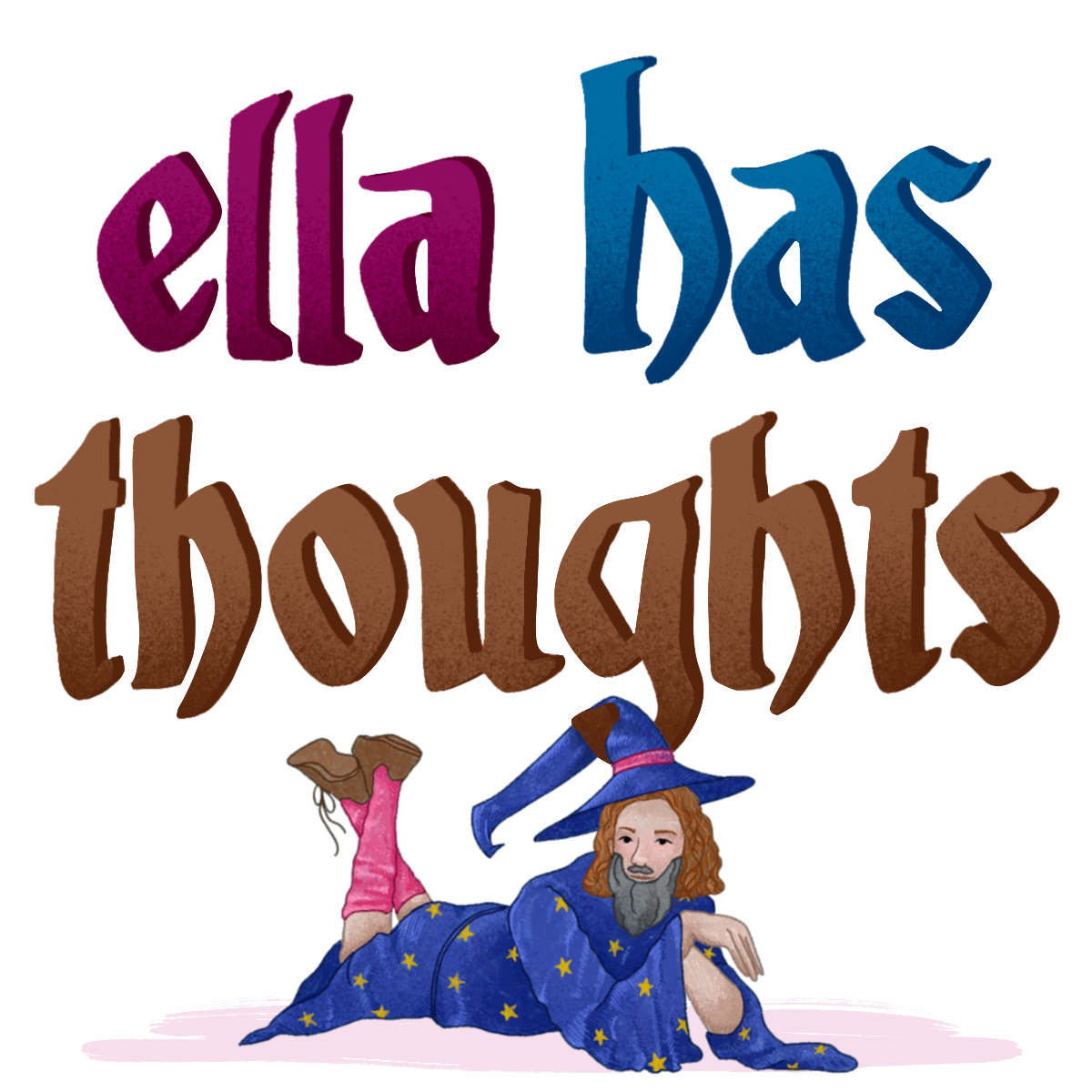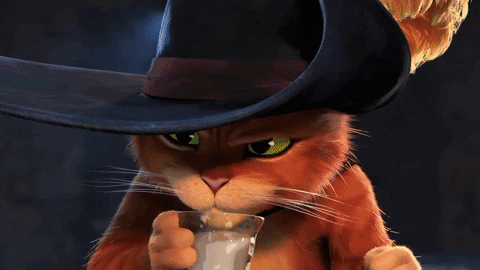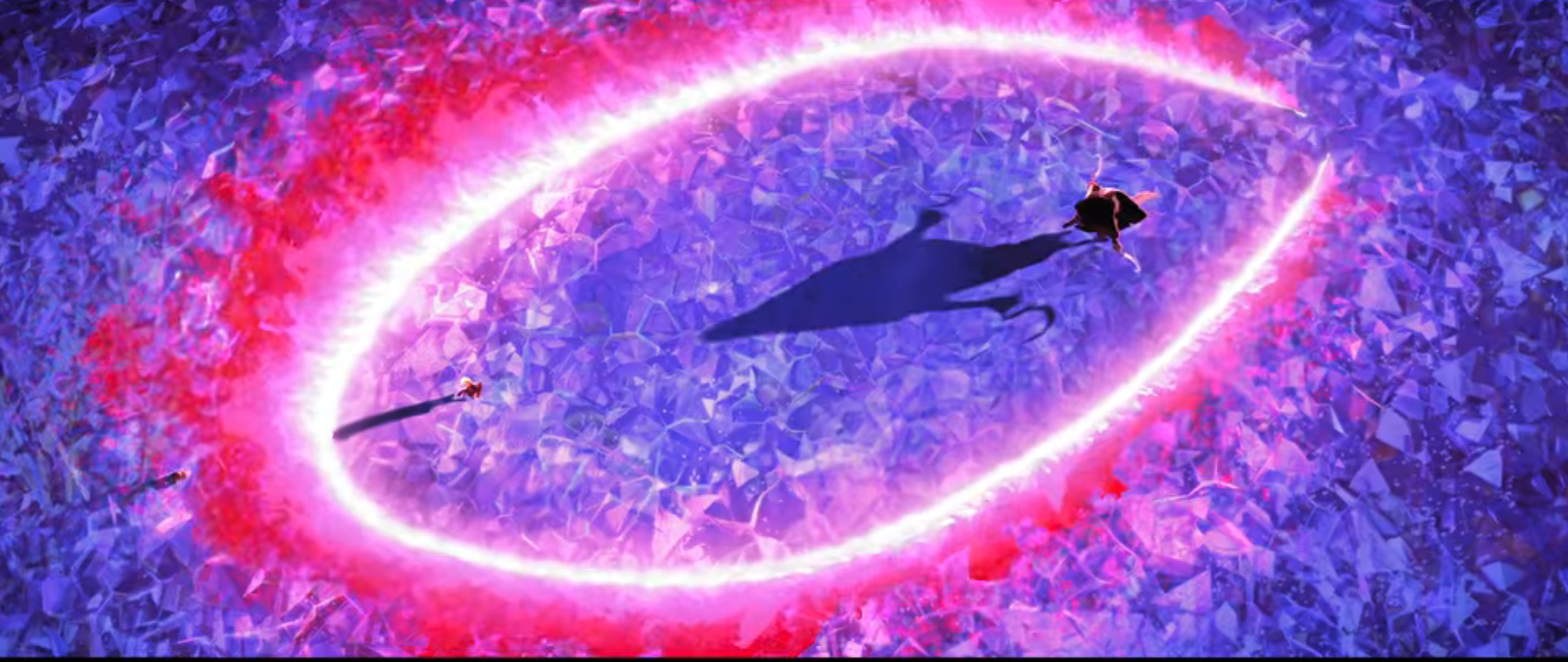Puss In Boots: All Paths Lead to Heroism
What is the first thing that comes to mind when I say the words “Fairytale” and “hero”?
Hello and welcome to thoughts™ with ella, this week brought to you by a recent watch and re-watch of Puss in Boots: The Last Wish. A movie that didn’t have to go as hard as it did.
What is the first thing that comes to mind when I say the words “Fairytale” and “hero”?
I predict that it’s the culturally-imbedded linguistic expression “knight in shining armour”, or perhaps a swashbuckling man who is extremely competent in swordplay, or, a man who rescues, saves, and ultimately overcomes evil and adversity. I also predict that the image of a man who feels fear, who asks for help, who is openly vulnerable, is not even the second thing that comes to mind.
The trope of the “knight in shining armour” finds its origins in fairytales, and is so culturally well-known that you’d be hard-pressed to find an adult who hasn’t heard the phrase. What’s more is the character of the knight in shining armour, otherwise known as an archetypal hero.
According to Margery Hourihan in ‘Deconstructing the Hero’, a hero’s story is “a story about superiority, dominance and success.” We see this in stories both old and new. Prince Charming slays the dragon and gets the girl. The huntsman slays the wolf. The knight kills the witch. The cat in shoes defeats a giant.
In this movie, in this story, Puss overcomes difficulties and opponents not only because he is strong, brave, and determined to succeed, but because he has help. In the beginning, as with anyone who needs to learn something, he does act independently and is unwilling to ask for help. He often does accept it, which is good, though one could argue that he would have been stupid not too—and heroes are rarely foolish. Well, they’re not meant to be seen as foolish, anyway.
That being said, this film didn’t strike me as one that wholly treads the heroic path so often walked by stories before it.
It differs, perhaps not greatly, but it does differ.
After losing a sword fight with a wolf who calls himself “Death”, Puss comes face to face with the fact that his fearlessness and bravery, his untouchable “nature”, is not in fact a constant, guaranteed part of his personhood or identity. In fact, he realises this not by getting mad or managing to beat Death just enough to get away, he is shown feeling real, true, fear. Panic, even. It sends him escaping down a medieval toilet and through a sewer pipe in order to flee.
In many movies, men’s fear is treated as a joke. I was sitting in my bed with my fingers crossed that no character would make a “haha you ran away” joke, or anything else that would have turned Puss’s emotions, his shock, his fear, into something the audience is asked to laugh at. I feel like the bar for this is pretty low, but I am super glad that this movie allowed Puss to struggle with feeling his feelings, eventually admit his feelings, be vulnerable around others, and ultimately do so without being dismissed, minimised, or made fun of.
Even when Puss buries his sword, boots, and hat, no longer believing himself to be worthy of the name “Puss in Boots” who is “everyone’s favourite fearless hero”, even when there are moments we’re being asked to laugh (such as when Puss gives his own eulogy), it’s never about the fact that he’s experiencing very real and vulnerable emotions.
There is even one scene in the movie where he sees Death and flees again, and has a panic attack in the woods. He breathes quickly, cannot slow it, is wide-eyed and unsure what to do but collapse against a tree as his heart races. One of the other characters, an aspiring therapy dog called Perrito, sees this and lays his head on Puss’s stomach, showing an acceptance and offer of support rarely seen between two men in a fairytale.
It makes me think about all the other fairytales and how so often we as consumers do a lot of rationalising and filling in of gaps—how many of those Heroes would have come home with PTSD from slaying a dragon? How many Heroes would have found themselves afraid of the dark after enduring trials designed to frighten them? Why is it that we rarely see those effects, those realistic impacts? Is it at least partly because it would render their success less of a success?
Fear is such a big part of this film that it challenges Puss’s long-held beliefs about himself, and calls into question who he really is. Who is Puss in Boots if he is not a fearless hero? He is forced to look at himself both metaphorically and literally, when he comes face to face with representations of his past eight lives, and re-examine who he really is at his core—what he could be if he weren’t constrained to the role he’s played for so long. His overall objective in the movie is to find the Wishing Star and wish for more lives so he can stave off death, but it turns out that dying wasn’t actually the fate that frightened him most.
We come to learn that the thing Puss truly fears, the thing he himself comes to realise over the course of the film, is a life not lived authentically, a life not lived to its fullest, metaphorically and literally on the side of #Team Friendship. His last eight lives were spent being strong, fearless, heroic, larger than life, “the ideal”, but what he missed is that a life lived with authenticity, openness, vulnerability, friendship, and love, is worth more than the mythology of “hero”.
And this is where I present my reading of the text in which Death is not only Death, but Toxic Masculinity. In many ways, this movie read to me like a metaphor for patriarchy and toxic masculinity, and breaking “generational” cycles of harmful beliefs.
Death (toxic masculinity) follows him everywhere and informs Puss’s decisions, even if he doesn’t realise it. It’s something he could ignore for a long time, never really seeing or noticing it but still being impacted by it. Boys are socialised from a young age to follow patriarchal norms that naturalise and normalise aggression, for example, through the idea of ‘boys will be boys’. And how many archetypal fairytale heroes do we know who defeat their Big Bads without aggression?
Puss’s run-in with Death (toxic masculinity) at the beginning of the film forces him to question everything that constitutes the “legend of Puss in Boots”.
Who is he if not a fearless hero? Nobody.
What is a man who is not strong, brave, and successful? Nothing.
Can we divorce Puss’s heroism from his male identity?
Puss wanted to find the Wishing Star so he can get more lives and “conquer” death, but death has been with him all along, in much the same way men are raised under patriarchy and taught to deny their feelings. Luckily for Puss, he is companioned by both Kitty Soft Paws and Perrito, who pose through the potential of friendship and trust an alternative to Puss’s life of lonely sword-lifting and giant-fighting. “You’ve become a scaredy cat” his former lives tell him, echoing one of the harmful foundations of toxic masculinity: asking for help is seen as a failure, as weak, rather than as a necessary part of life and well-being.
But it’s through these friendships and working together with others that they ultimately defeat one of the Big Bad villains, Little Jack Horner. Puss is no longer the lone-wolf. In fact, it’s the Wolf he must defeat.
And it’s the defeat of the Wolf where I personally found the movie to slightly unravel—more specifically, how he is defeated.
While still great and extremely enjoyable, my ultimate excitement and interest in the conversation it seemed to be having about toxic masculinity and identity felt undermined by the final climactic battle between Puss and Death.
“In patriarchal culture, males are not allowed simply to be who they are and to glory in their unique identity. Their value is always determined by what they do. In an antipatriarchal culture, males do not have to prove their value and worth. They know from birth that simply being gives them value, the right to be cherished and loved. I”
― Bell Hooks, The Will to Change: Men, Masculinity, and Love
In the beginning, Puss flees from his Big Bad, and when he later comes face-to-face with the Big Bad Wolf, he does not seem to recognise fear or death as a part of himself which he must acknowledge and accept—rather, the climactic moment is yet another physical battle. Death says “Are you gonna take the coward’s way out, run away to more lives? Or are you going to fight?” which sets up a classic binary of “Fighting, brave! Not fighting, cowardly!”, which goes against the lesson I thought Puss needed to learn, that his identity and worth isn’t contingent on his bravery and his ability to win a fight and be a hero.
Physically battling Death in order to overcome fear feels like a fundamental misunderstanding of how to deal with fear, how to deal with what is expected of you when it doesn’t align with what you want or who you really are.
One must recognise the thing for what it is, and must brave vulnerability before they can move forward. Puss’s journey is inward and forward rather than outward, but still relies on the traditionally masculine imagery and action associated with heroism.
This climactic moment is set up in such a way that Puss is on his own—blocked from his friends by a wall of fire which, perhaps funnily, dare Isay it, resembles the iconographic basic shape of a vagina. I mean, could we get any more clear on the whole hero’s journey “rebirth” thing? Anyway.
Separating Puss from his friends in order to put him in the ring feels thematically misaligned with the lessons he learns along the way and the apparent lessons the text began to explore but didn’t quite follow through on. Not only that, but in this pivotal moment, after his potential life flashes before his eyes, one full of #Team Friendship and love, he suddenly turns fearless again. There is a change here, because this time he’s fighting to preserve a communitarian life rather than an individualistic one, and that empowers him, however, he’s ultimately forced to act alone, his friends rendered passive and forced to watch from the sidelines much like his audience in the beginning of the film.
It has Puss do all of the typical macho heroism things: fight alone, establish dominance, defeat the Big Bad, and do so without fear.
Thus, while there is much to admire about Puss’s story in this film, and while I love it so much that I watched it twice in three days, the movie does seem to fall back onto the long-trodden path of the traditional hero’s journey for Puss’s ultimate climactic moment, albeit perhaps a little to the side (and still with much to admire). Puss’s status quo has changed because he now has a group of friends he can trust, but the ultimate ideal portrayal of heroism is still reaffirmed, and Puss is arguably now a better hero for having conquered death. Puss is given depth and complexity, something that takes him from an archetype to a fully-fledged person (or cat) with thoughts, feelings, and history.
I think the narrative in Puss in Boots: The Last Wish does present a version of feminist masculinity, in which Puss learns emotional-awareness, relational skill, to give and receive empathy, to act as an individual as well as part of a team. I only wish it hadn’t been signed by the tip of a sword, in the impact of a foot to the face of Death, through such a physically aggressive fight, ultimately not deviating too far from the culturally embedded traditional narrative path of heroism in which every hero (man) must or will stand alone.
So, what do you think?


